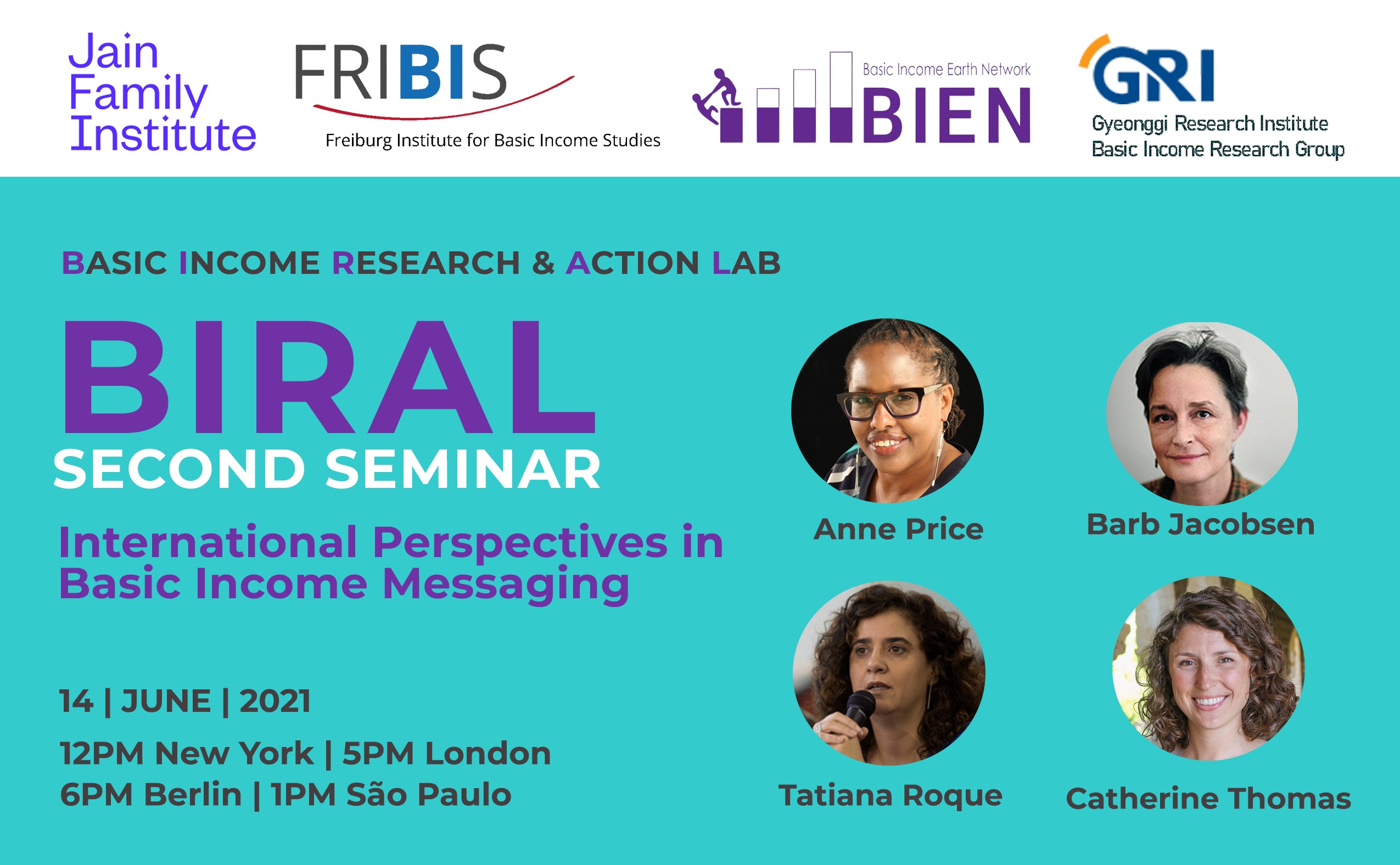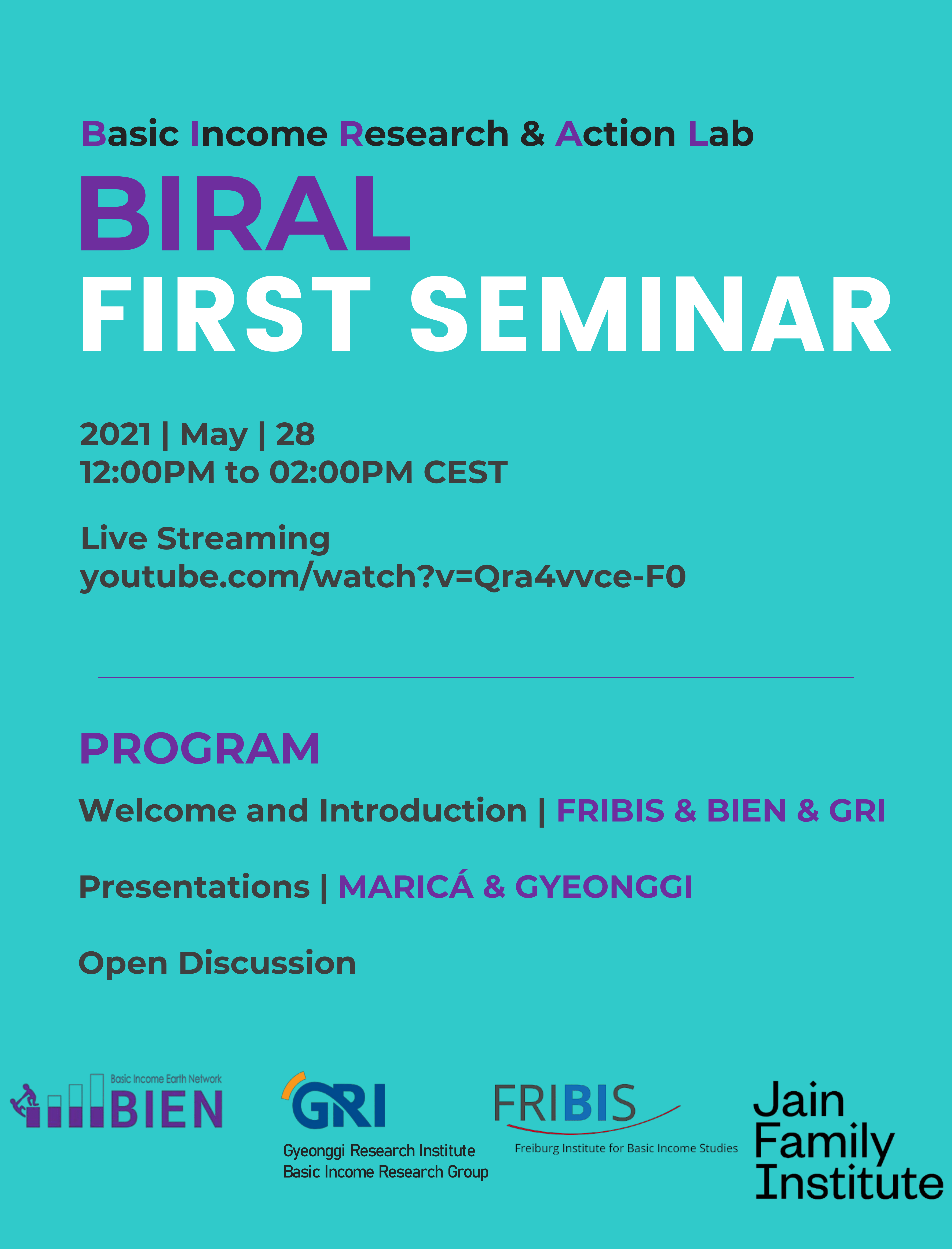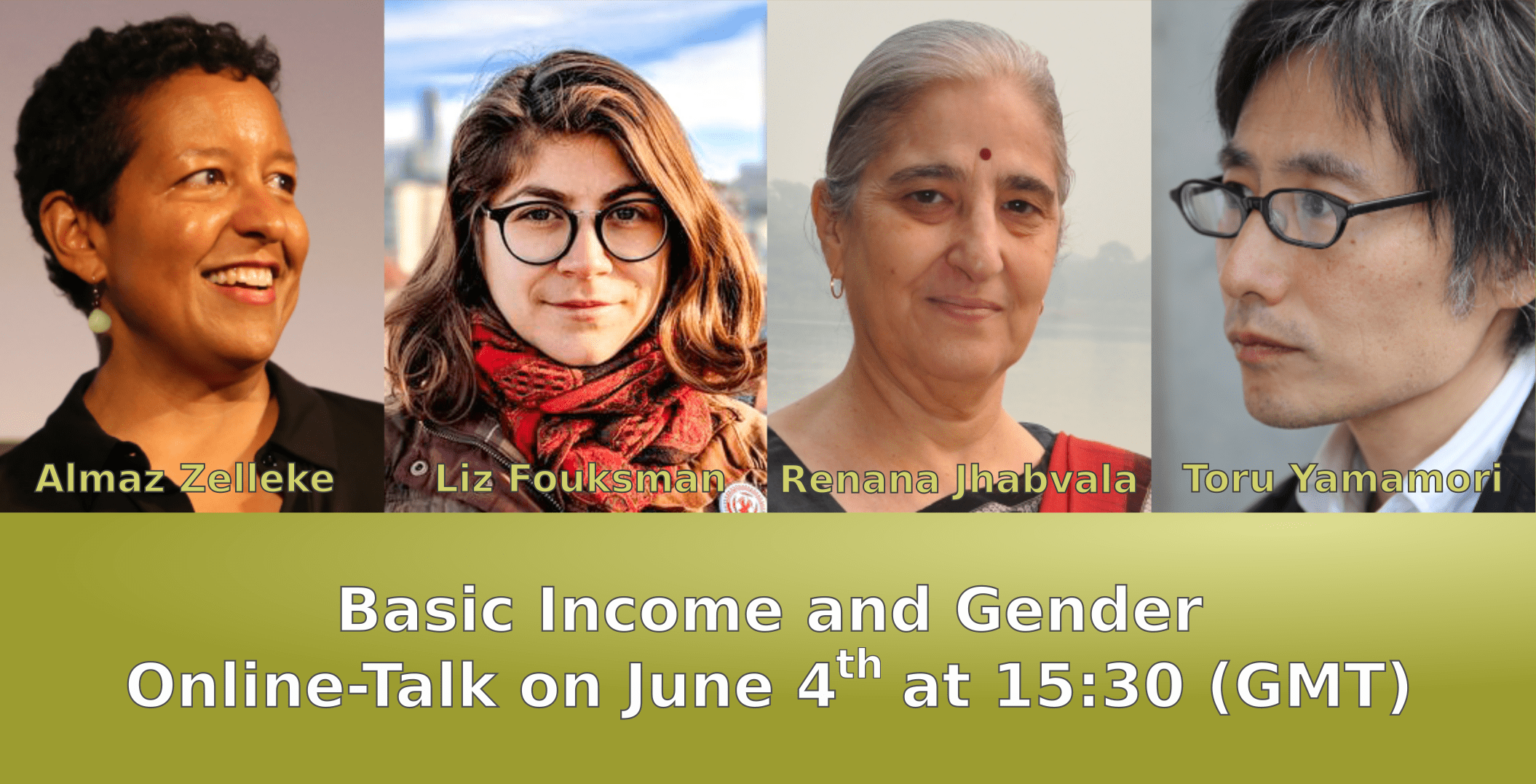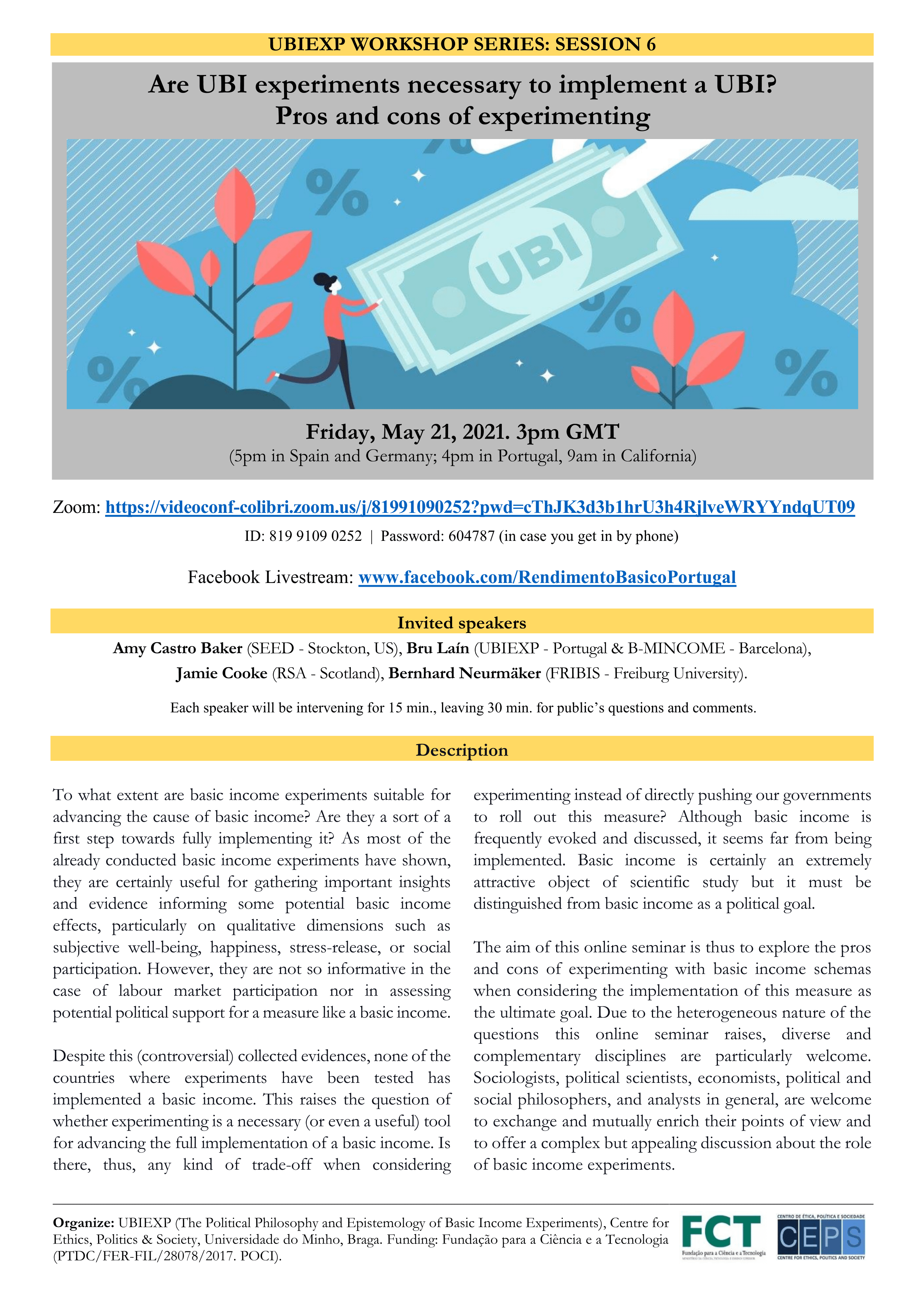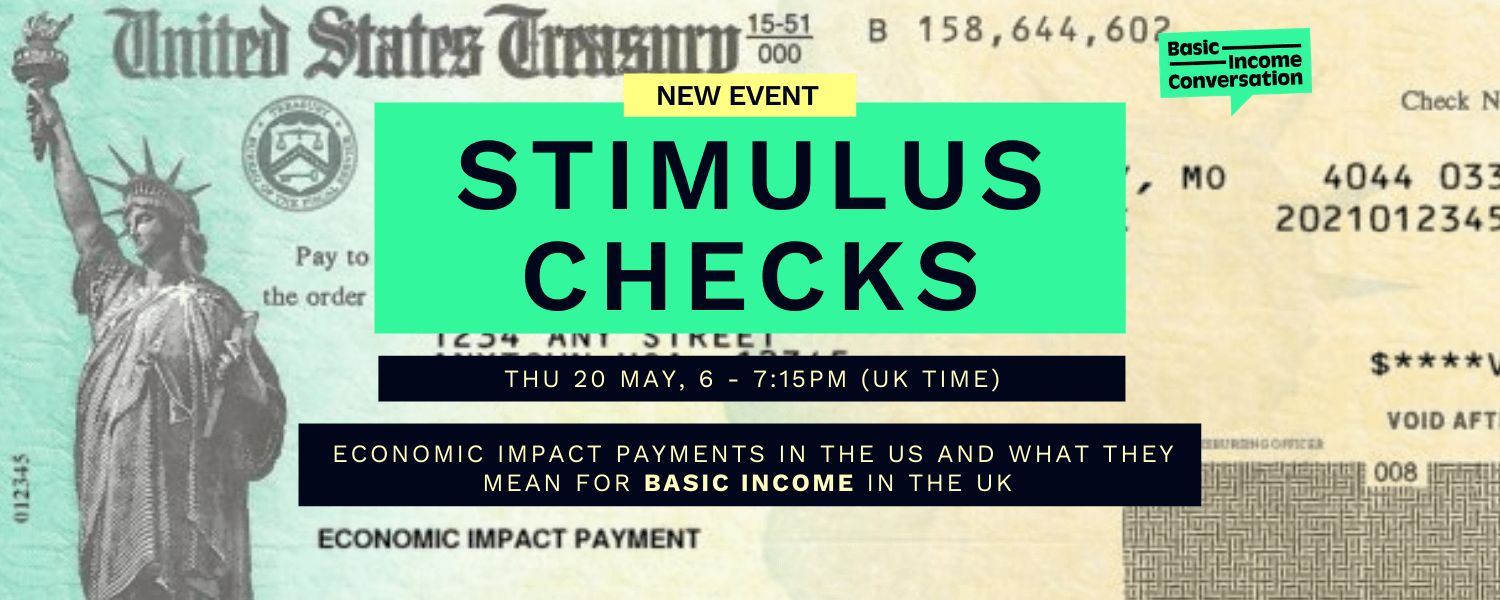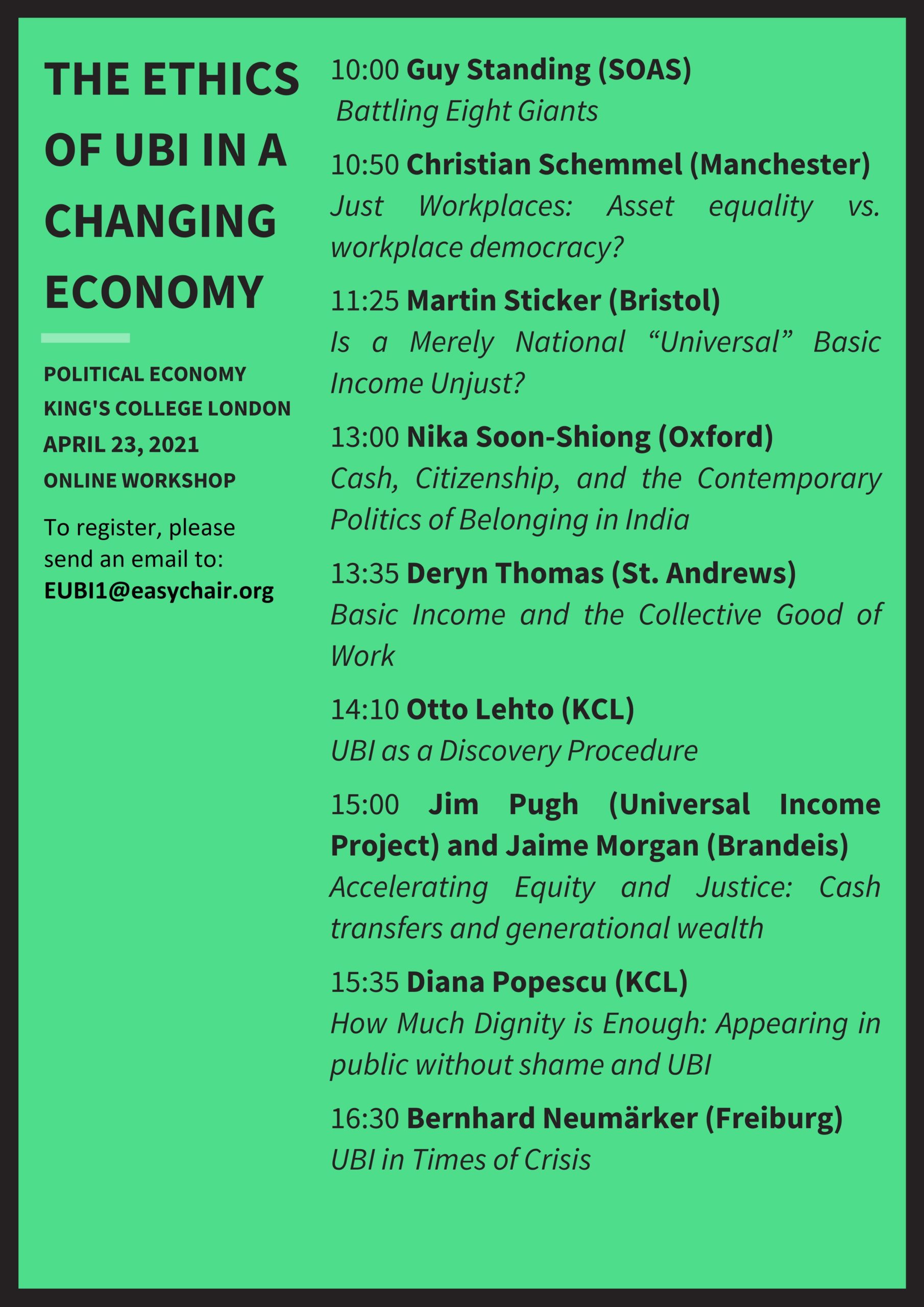What opportunities does the UBI open up specifically for women? What is necessary? Does a UBI correspond more to women’s understanding of and relationship to work, the economy and income than to male-dominated ideas?
Can UBI promote gender-justice and gender-equality? Might it transform gendered notions of work, value and care? What political, economic and social demands emerge from a focus on women’s voices?
With:
Almaz Zelleke, Professor of Practice in Political Science at the New York University in Shanghai, China. Almaz Zelleke specialises in UBI issues and specifically in UBI and gender. She is a member of the Basic Income Earth Network (BIEN) and the North American Basic Income Guarantee (NABIG) Network and of USBIG.
Dr. Liz Fouksman, Lecturer (Assistant Professor) in Social Justice at the Centre for Public Policy Research, King’s College London. Liz is an economic anthropologist. Her current research focuses on the grassroots views of the long-term unemployed in South Africa and Namibia on questions of redistributory justice, universal basic income and work.
Renana Jhabvala, president of SEWA Bharat, the All-India organization within SEWA family (Self Employed Women’s Association), 1,8 million women strong. Renana Jhabvala is co-initiator of UBI for women projects in Delhi and of the large UBI project in several villages in India in 2013 in Madhya Pradesh.
Toru Yamamori, Professor in Economics at the Doshisha University, Kyoto, Japan. His research is focused on feminist economics, economic philosophy and history of economic thought, and he has conducted an oral history on working-class women’s liberationists in the long 1970’s Britain. He is academic research editor of BIEN.
Moderation: Enno Schmidt, Research assistance at the Götz Werner Chair for Economic Policy and Constitutional Economic Theory at the University of Freiburg, Germany, co-founder of the Swiss UBI initiative and referendum about the introduction of UBI.
To register for the event, send an email to contact@fribis.uni-freiburg.de. You will receive the login details via email.
